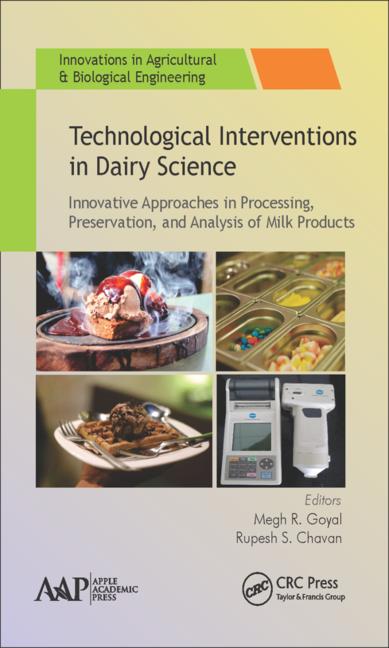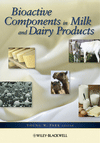Press release from University of California, Davis
After spending more than a decade decoding breast milk’s important health-promoting constituents, a team of researchers in the Foods for Health Institute at the University of California, Davis, is now doing the same for cow’s milk, with potential benefits both for human health and the U.S. dairy industry.
Focusing on a group of naturally occurring milk compounds called “glycans,” the researchers are identifying molecules that -- like those in mom’s milk -- interact with beneficial bacteria in the infant gut to ease digestion, prevent inflammation and even fight cancer.
Their research, which has had a long funding history, received two more votes of confidence from the National Institutes of Health in the form of a $4.2 million grant from the National Center for Complementary and Alternative Medicine and a $2.7 million grant from the National Cancer Institute.
The first grant is led by David Mills, a professor and Peter J. Shields Endowed Chair in Dairy Food Science in the Department of Food Science and Technology, and the second is led by Yu-Jui Yvonne Wan, a professor and vice chair for research in the Department of Pathology and Laboratory Medicine of the UC Davis Health System.
[Pictured in photo above are: Daniela Barile, Carilto Lebrilla, David Mills and Bruce German.]
“We’re working to better understand all of the bioactive molecules in milk, particularly those that promote growth of naturally occurring microbes in the intestine and, in general, boost human health,” said Mills, who is collaborating on both grants.
Mills and colleagues are concentrating on glycans because they selectively feed beneficial intestinal bacteria and block disease-causing microbes from gaining a foothold.
“In babies, these milk compounds interact with very specific infant-borne bacteria, called bifidobacteria, to reduce inflammation, boost immunity and restore calm to these very fragile infant intestines, especially in premies,” Mills said.
He noted that knowledge of the mechanisms involving how these compounds function also will have tremendous applications for other life stages and health circumstances, including during chemotherapy treatments, obesity management, and dealing with irritable bowel syndrome or inflammatory bowel disease.
UC Davis works with Hilmar Cheese
“Given that we are working with cow’s milk as a source of these bioactive molecules, there is the opportunity to scale up this process, especially with molecules that are derived from whey and other dairy byproducts,” Mills said.
In these two NIH-funded projects, the researchers are working with Hilmar Cheese Company, a California manufacturer of both cheese and whey proteins, to obtain specific bioactive compounds from cow’s milk in a scale large enough for animal studies. Findings from these studies will help determine if cow’s milk glycans provide the same protective functions -- functions that would be helpful to a range of fragile intestines.
“As a company focused on delivering the nutrition in milk, we fully support research that will help further identify and understand the bioactive components of milk,” said Tedd Struckmeyer, vice president for engineering at Hilmar Cheese Company.
The research team is hopeful that findings from these studies of milk-based compounds can be rapidly developed into products capable of enhancing human health.
“Given that milk is already a food, development of health-promoting compounds from milk would not involve the years of testing that are required when developing new therapeutic drugs,” Mills said.
He noted that the research also will likely benefit the U.S. dairy industry, by identifying and increasing value in whey and other milk byproducts.
Collaborating with Mills and Wan on these two projects at UC Davis are Helen Raybould of the School of Veterinary Medicine; Carlito Lebrilla of the Department of Chemistry; and Bruce German, Carolyn Slupsky and Daniela Barile of the Department of Food Science and Technology. These faculty members are also members of the new Center of Health for Advancing Microbiome and Mucosal Protection.









